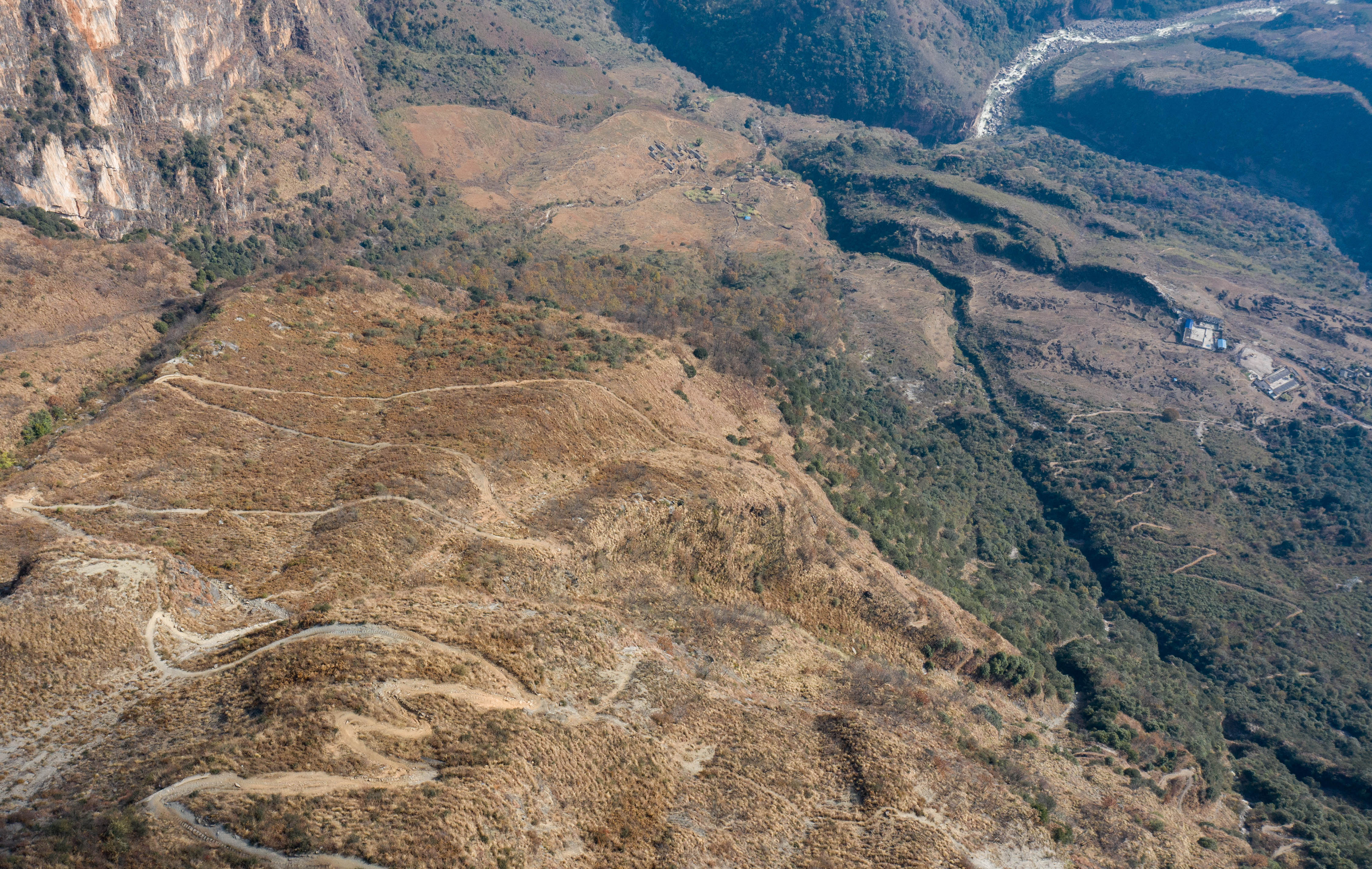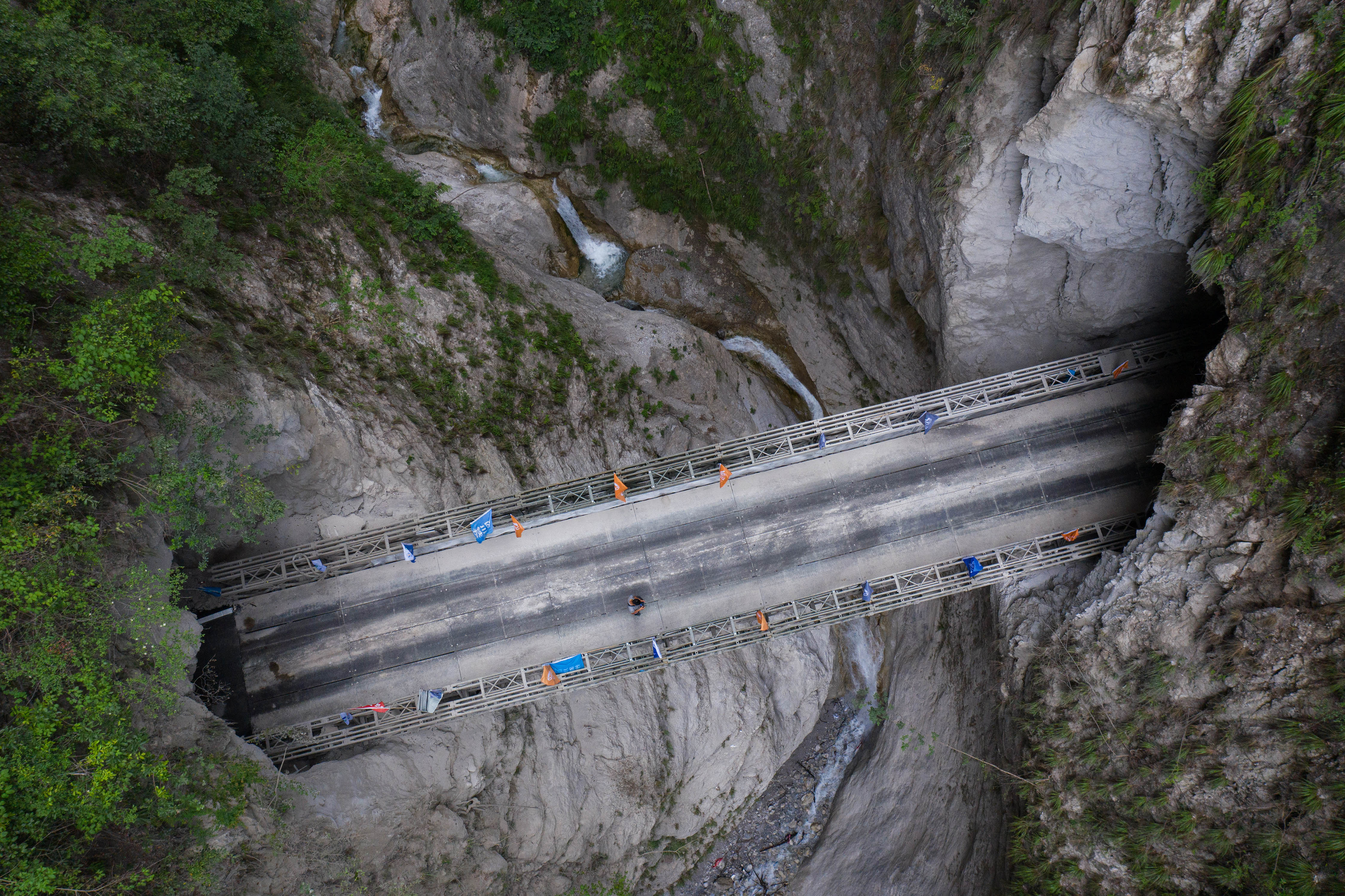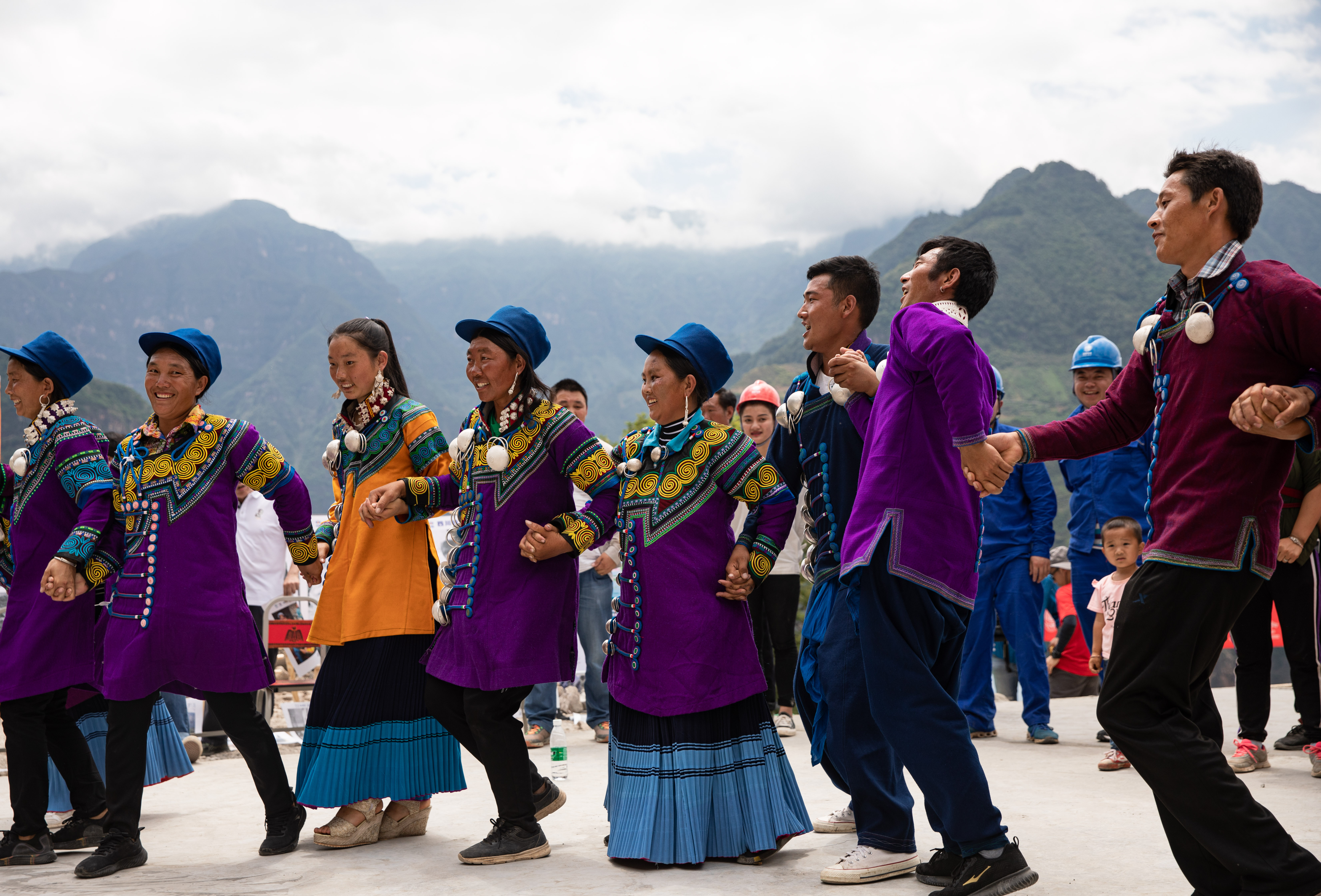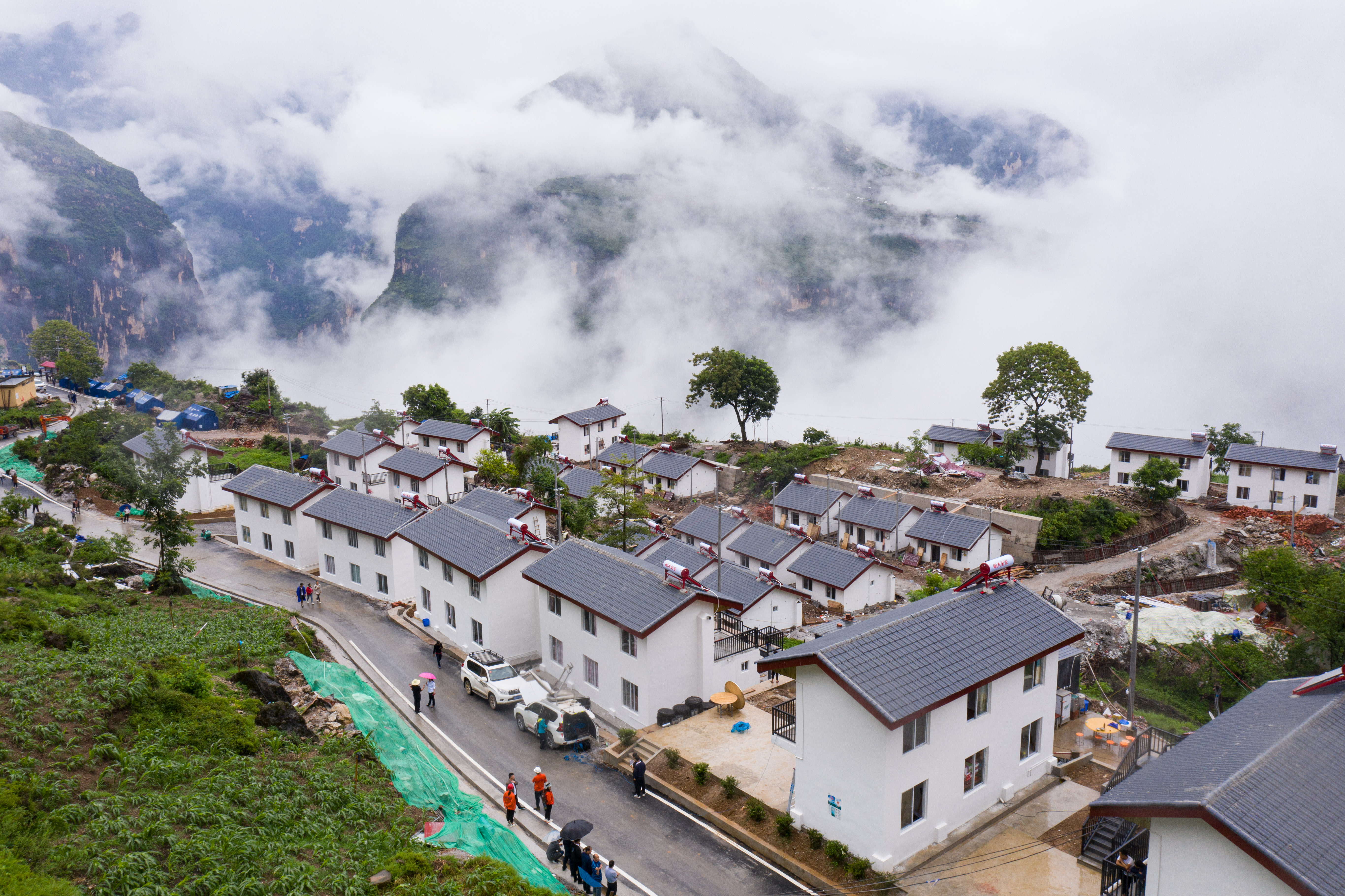Paved road leads remote village to prosperous life
-- Abuluoha Village was once isolated for treating leprosy patients in the 1960s. With a population of merely 253 people, Abuluoha had long suffered from poverty and poor transport infrastructure due to the rugged mountainous terrain.
-- It was the country's last administrative village with the proper conditions to be linked with a paved road.
-- As part of the nationwide anti-poverty efforts, Abuluoha village started to build the road one year ago. On June 30, all the construction work was completed and the road officially opened to traffic.
by Xinhua writes Hui Xiaoyong, Dong Xiaohong, Hu Xu and Xia Xiao
When residents in mountainous Abuluoha village saw a minibus drive along their solitary and newly opened paved road and pull into a driveway, rapturous singing reverberated through the surrounding mountains.

Aerial photo taken on June 30, 2020 shows a car driving on the newly built road in Abuluoha Village, Liangshan Yi Autonomous Prefecture of southwest China's Sichuan Province. (Xinhua/Jiang Hongjing)
Located deep in a valley in southwest China's Sichuan Province, the village was once an isolated treatment center for local leprosy patients in Butuo County, Liangshan Yi Autonomous Prefecture, in the 1960s. Years after the disease had been eliminated in the area, Abuluoha became an administrative village in 2007.
With a population of merely 253 people, Abuluoha had long suffered from poverty and poor transport infrastructure due to the rugged mountainous terrain.

Aerial photo taken on Dec. 27, 2019 shows the narrow winding trails leading to Abuluoha Village, Liangshan Yi Autonomous Prefecture of southwest China's Sichuan Province. (Xinhua/Jiang Hongjing)
It was the country's last administrative village with the proper conditions to be linked with a paved road, according to the provincial transport department.
Paved roads are the key to the development of the nation's vast rural areas. As the Chinese saying goes, "If you want to get rich, build roads first."
Functioning as blood capillaries of the country's transport network, rural roads provide more and more rural residents with safer and more convenient transportation, helping them shake off poverty and pursue prosperity.
ARDUOUS PROJECT
As part of the nationwide anti-poverty efforts, Abuluoha village started to build the road one year ago.
It was not an easy task. The 3.8-km-long road stretching along cliffs and ravines included three tunnels and a steel bridge.

Aerial photo taken on June 29, 2020 shows the steel bridge linking tunnels on the road leading to Abuluoha Village, Liangshan Yi Autonomous Prefecture of southwest China's Sichuan Province. (Xinhua/Jiang Hongjing)
Since large equipment could not access the village by road, the local transport department hired a heavy transport helicopter to fly in the machinery to the village for the road construction.

A helicopter transports an excavator to Abuluoha Village, Liangshan Yi Autonomous Prefecture of southwest China's Sichuan Province, Dec. 5, 2019. (Xinhua/Wang Xi)
Amid the outbreak of the novel coronavirus this year, villagers volunteered to join in the construction. On June 30, all the construction work was completed and the road officially opened to traffic.
Previously, villagers had to walk more than three hours to get out of the village via a stone stairway snaking along the mountain. With the new road, the trip only takes around 10 minutes.
Since November 2012, Sichuan has invested a total of 173.4 billion yuan (about 24.54 billion U.S. dollars) to improve rural transport infrastructure, building and renovating 170,000 km of rural roads.
By June 30, all counties and administrative villages with the proper conditions in the province had been given access to bus service.
BETTER LIFE
Biji Layue, 65, an ethnic Yi villager, was in the crowd celebrating the opening of the road on Tuesday. He said he often sat with other elderly villagers on the mountain to see the progress of the road construction.

Villagers in traditional costumes of Yi ethnic group dance to celebrate the opening of the new road in Abuluoha Village, Liangshan Yi Autonomous Prefecture of southwest China's Sichuan Province, June 29, 2020. (Xinhua/Jiang Hongjing)
The road has brought many changes and opportunities to people in the village.
Qiesha Secong never expected that he would sell his family's only horse. Seeing the new road extending to the village, the 31-year-old sold the horse and bought a motorcycle.
More local specialties such as honey and Sichuan pepper are expected to be transported out of the isolated village via the new road.

Aerial photo taken on June 30, 2020 shows the newly built road and a relocation site in Abuluoha Village, Liangshan Yi Autonomous Prefecture of southwest China's Sichuan Province. (Xinhua/Jiang Hongjing)
As one of the areas in deep poverty in the country, Liangshan Yi Autonomous Prefecture aims to lift 300 impoverished villages, including Abuluoha, and 178,000 poor residents out of poverty this year.
Since late 2012, China has invested over 2.6 trillion yuan in building or upgrading rural roads with a total length of 1.88 million km, according to the Ministry of Transport. Enditem




